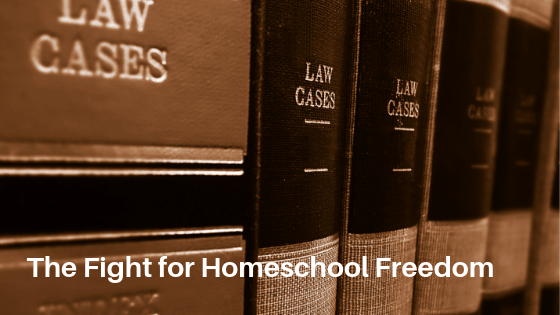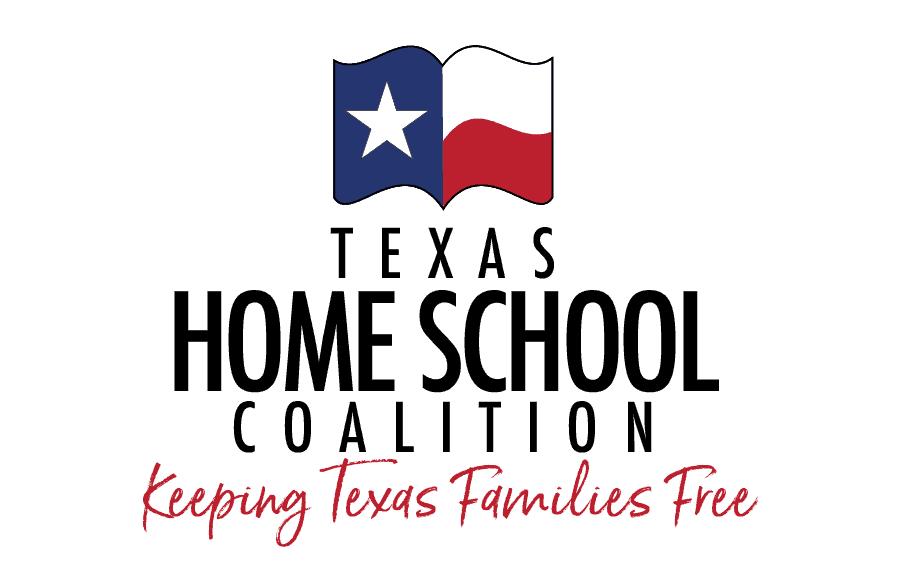History of Homeschooling in Texas – Getting Started
How to Withdraw Your Child from Public School in Texas
Requirements to Homeschool in Texas
Homeschool Terminology
How to Homeschool
Homeschooling in Texas
Aprender acerca del homeschooling en Texas
(The Journey to Becoming One of the Best States in the Country for Homeschooling)
Are you wondering how should you go about homeschooling in Texas? Here is a bird’s-eye view of the history of homeschooling in Texas, along with tips on how to start your homeschooling journey.
Read Ahead:
A Boom in Homeschooling (in Texas and the U.S.)

Texas is one of the most pro-homeschool states in the U.S. In 1994, Texas courts ruled that homeschools should be legally defined as private schools. Since the state of Texas does not regulate private school education, this gave homeschooling families in Texas immense freedom in their choices.
Texas leads the nation in the number of families who homeschool. THSC estimates that more than 400,000 families in the state have chosen this method of education and that more than 750,000 students are being taught at home.
We believe these numbers are conservative estimates, given that homeschool students and parents do not legally have to register with any agency or department. These statistics are compiled based on the number of students enrolled in homeschool support groups/co-ops, the number of individuals on the THSC email and direct mail lists, and the number of current THSC members.
According to the Digest of Education Statistics, a report from the U.S. Department of Education, 1.77 million students between the ages of 5 and 17 years were homeschooled in 2012. That’s an increase of 677,000 students since 2003! In other words, the number of children homeschooled in the United States increased by 61.8 percent between 2003 and 2012.
This was an especially large increase in homeschooling numbers since the 1990’s. In 1999, the National Center for Education Statistics (NCES) estimated the number of homeschoolers in the U.S. at around 850,000, or 1.7 percent of U.S. students. According to this NCES report, 3.4 percent of all students are now homeschooled. That’s equivalent to a 108.6 percent increase in the number of homeschooled students between 1999 and 2012.
History of Homeschool in Texas
The 1994 Texas Supreme Court decision in Leeper v. Arlington ISD has become a pillar of defense for homeschool parents and students from unlawful attacks against their right to home educate. Although widely known and cited, the actual provisions of the Leeper decision remain distant and ambiguous to many homeschoolers.
So what exactly did the Leeper decision provide for home educators?
Background of Leeper: The Case that Legalized Homeschooling in Texas

According to the historical background provided in the Leeper decision, in the early 20th century, “No more than 10 percent of school-age children attended public schools … many children were taught at home.”
Public school attendance was not mandated in Texas until 1916, at which point most children in the state did not attend public school. In 1923, these compulsory attendance laws were amended to exempt, “Any child in attendance upon a private or parochial school which shall include in its course a study of good citizenship, and shall make the English language the basis of instruction in all subjects. …”
According to the evidence presented to the court in the Leeper case, at the time these laws were amended in 1923, “a child pursuing a bona fide course of study at home designed to meet the basic education goals of reading, spelling, grammar, mathematics and good citizenship was considered to be attending a private school.”
Thus, until the time of the Leeper decision, homeschoolers had traditionally been exempted from compulsory attendance laws in Texas under the presumption that they were classified as a type of private school by Texas law.
In 1981, for the first time, the Texas Education Agency (TEA) changed its official interpretation of Texas’ compulsory attendance laws to state that homeschools were not exempt from public school attendance because they were not classified as private schools for the purposes of the compulsory attendance statute.
By 1985, the TEA had initiated prosecutions against at least 150 Texas families.
Leeper Begins

In March 1985, on behalf of several homeschool families and curriculum suppliers, attorney Shelby Sharpe filed a lawsuit against all the school districts in Texas on behalf of all home educators in Texas.
In what became known as the Leeper vs. Arlington class action suit (Leeper v. Arlington I.S.D. No. 17-88761-85), home educators asked the court to give a declaratory judgment on the question of whether or not the legislature had intended homeschools to be private schools when they enacted the compulsory attendance statute in 1915. The basic question was, are homeschools private schools for the purpose of compulsory attendance?
The Tarrant County District Court ruled that home schools are indeed private schools for the purpose of compulsory attendance. On April 13, 1987, presiding Judge Charles J. Murray issued a decision (binding on all 1,100 school districts) which was a complete vindication of the rights of parents to educate their children at home in the state of Texas.
Leeper v. Arlington District Court
September 4, 1987
The case was appealed by the state, and on November 23, 1991, the Court of Appeals, Second District, upheld the lower court’s ruling completely and without changes.
November 27, 1991
The state again appealed, and in June of 1994, the Texas Supreme Court, in a unanimous 9-0 decision {Texas Educ. Agency v. Leeper, 893 S.W.2d 432 (Tex. 1994)}, confirmed the lower court’s decision.
Leeper Supreme Court of Texas Decision
Leeper Case Arguments: Homeschools are Exempt From Compulsory Attendance
As stated in the Leeper decision, “The dispute in this class action centers on whether the private school exemption includes children who are taught at home, in a bona fide manner, a curriculum designed to meet certain basic education goals, including a study of good citizenship.” Thus, the debate surrounding the Leeper decision focused specifically on the correct interpretation of the compulsory attendance laws.
The TEA argued to the court that because homeschools were not specifically exempted from the compulsory attendance statute, they were in violation of the law and subject to prosecution for truancy.
Shelby Sharpe argued that the clear legislative intent behind the compulsory attendance statute was to exempt homeschoolers, as evidenced by the fact that homeschoolers had been considered exempt from the statute since 1923.
The Decision: How Homeschoolers in Texas Became Free

On September 4, 1987, the Tarrant County District Court ruled in favor of homeschooling. After an appeal by the state to the Second District Court of Appeals, the decision was again upheld in defense of homeschooling on November 27, 1991.
On June 15, 1994, after the state had appealed a second time, the Supreme Court of Texas issued a 9-0 decision upholding the ruling by the lower court and cementing the right of Texas parents to teach their children at home.
In the final ruling, the Supreme Court of Texas reviewed the decision issued originally by the district court, which stated that “a school-age child: residing in the state of Texas who is pursuing under the direction of a parent or parents or one standing in parental authority in or through the child’s home in a bona fide (good faith, not a sham or subterfuge) manner, a curriculum consisting of books, workbooks, other written materials, including that which appears on an electronic screen of either a computer or video tape monitor, or any combination of the preceding from either (1) of a private or parochial school which exists apart from the child’s home or (2) which has been developed or obtained from any source, said curriculum designed to meet basic education goals of reading, spelling, grammar, mathematics and a study of good citizenship, is in attendance upon a private or parochial school within the meaning of Section 21.033(a)(l) of the Texas Education Code and exempt from the requirements of compulsory attendance at a public school.”
After reviewing the lower court’s decision, the Supreme Court of Texas stated in its final opinion that “From the record before us, we conclude that the district court’s declaration of the meaning of ‘private school’ in § 21.033(a)(l), as it relates to home schools, is clearly correct.”
Texas Homeschool Laws 1994 to 2019

The Leeper decision held that, so long as a homeschool met these requirements:
- The instruction must be bona fide (i.e., not a sham),
- The curriculum must be in visual form (e.g., books, workbooks, video monitor),
- The curriculum must include the five basic subjects of reading, spelling, grammar, mathematics, and good citizenship,
Then the homeschool was considered to be a legitimate homeschool and exempt from the compulsory attendance statutes in Texas.
Leeper Impact on Texas Homeschoolers

With the issuance of the Leeper decision came a strong defense for homeschools in Texas. Although sweeping in application, the legal impact of the decision remains narrower than many believe.
Learn more about the family and Texas pioneers behind the Leeper case.
Shelby Sharpe was the attorney and homeschool father behind the Leeper case, the landmark case that settled the question of homeschools in Texas being private schools. He is now the general legal counsel for THSC Association. Shelby Sharpe shares about the battle for homeschool freedom.
Texas Education Agency (TEA) Oversight
The Supreme Court of Texas included in its final decision a clarification that “Nothing in our opinion precludes the TEA from setting such guidelines for enforcement of the compulsory attendance law as are within its authority. Specifically, the TEA is not precluded from requesting evidence of achievement test results in determining whether children are being taught in a bona fide manner.”Although it provided a clear defense for homeschooling by establishing an exemption from compulsory attendance, the Leeper decision maintained that the TEA holds the authority to ensure homeschools are meeting the educational requirements set forth in Leeper.
Private School Classification
The classification of homeschools as private schools within the meaning of the Leeper decision was narrowly tailored by the court, in that it determined homeschools to be private schools specifically within the meaning of the compulsory attendance statute.
Although commonly misunderstood, the Leeper decision did not classify homeschools to be private schools for purposes outside of compulsory attendance. Homeschools in Texas remain legally classified as a subset of private schools, and are consequently subject to different requirements on issues outside the holding of Leeper.
After Leeper, The Fight for Liberty Wasn’t Over

In the aftermath of the decision, school districts across Texas began intimidating homeschools that they claimed did not meet the educational requirements outlined by Leeper.
THSC President Tim Lambert met with the TEA commissioner on behalf of the homeschool community and proposed a policy solution that was adopted by the commissioner. This has remained TEA policy since that time.
A homeschool family that is being questioned by a school district can offer a letter of assurance to the district verifying that they are meeting the requirements of Leeper, and TEA policy holds that the district must accept the letter as proof of a bona fide homeschool unless it has evidence to the contrary.
Today, more than two decades after the Leeper decision was laid down by the Supreme Court of Texas, homeschooling in Texas is more vibrant than ever.
Because of the foundation set by Leeper and the work that THSC President Tim Lambert did to shape TEA policy in Texas, homeschool families around the state are able to teach their children in line with their beliefs and in accordance with their children’s needs.
How to Start Homeschooling in Texas

To homeschool legally in Texas, you must follow three state law requirements:
- The instruction must be bona fide (i.e., not a sham).
- The curriculum must be in visual form (e.g., books, workbooks, video monitor).
- The curriculum must include the five basic subjects of reading, spelling, grammar, mathematics, and good citizenship.
In general, homeschoolers in Texas enjoy great freedom of choice. Current law requires that the government take a hands-off approach to homeschooling and does not permit discrimination based on homeschooling.
Homeschools in Texas have been determined by the Texas courts to be private schools for the purpose of compulsory attendance, and private schools are not regulated by the state of Texas. In practice the law means:
- Parents do not have to register with the state or local school district.
- Curriculum does not have to be approved.
- Teaching certificates are not required.
- Homeschooled students are not required to be enrolled in an accredited program.
The ruling in the 1994 Leeper case from the Supreme Court of Texas states that “a parent or one standing in parental authority” may educate a child. A homeschool may have whatever curricula the parents decide upon in whatever mode they choose, provided the curricula cover the five basic subjects of reading, spelling, grammar, math, and a study in good citizenship, and that the curricula are followed in a bone fide manner.
See the excerpt from the law that allows homeschooling in Texas.
See what directives Texas government agencies have been given regarding homeschoolers (this pertains to Texas homeschool laws from 1994 to 2019).
If your child has attended public school, you must withdraw them from public school before homeschooling. Here is the letter of intent to homeschool in Texas (or withdrawal letter) for you to use.
Homeschool Getting Started Tips

- Learn more about how to homeschool in Texas.
- What is the cost of homeschooling in Texas? The answer is it’s up to you. Get an overview of the different homeschooling styles and explore various curriculum providers and prices.
- Prices range from free to a full box curriculum, so you will be sure to find homeschool materials that fit your budget!
- How should you keep records in your homeschool? Here’s a straightforward guide!
- What about homeschooling through high school and preparing for college?
Visit HomeEducator.com for a wealth of resources on homeschooling and integrating life with homeschooling!
Texas Government Agency Directives about Homeschooling
Despite the legality of home education in Texas, many homeschool families have encountered problems when dealing with federal, state and local agency officials. To address these issues, at the request of THSC Association, many of these agencies have issued memos or letters clarifying their policies and have instituted procedures regarding home education and the law.
Most recently, TEA Commissioner Mike Morath released his pro-homeschooling statement. You will find these statements very helpful in outlining your rights and dealing with potential problems.
Decreasing Discrimination Against Homeschooling Families

On the state level, Texas requires state-supported colleges to treat a homeschool graduate as a public high school graduate and to use the same criteria for admission as for public high school grads.
In 2015, SB 1543 was passed to prevent state colleges from discriminating against homeschool graduates and to require them to treat homeschoolers the same as public high school graduates. These actions by the Texas legislature are evidence that Texas believes that education at home is equal to public school.
How Does Homeschooling Compare to Public School?

Homeschooling is not just a legitimate means of education. Many homeschooling families find that their students do extremely well academically and go on to be quite successful as adults.
Additionally, a large number of homeschool graduates attend college. In 2004, the Texas legislature amended the Texas Education Code to require state-supported institutions of higher education to accept homeschool graduates without discrimination and on the same basis that their public school counterparts are accepted.
Numerous studies also show that homeschooled students consistently score 30-35 percentage points above the national average on national standardized tests. Many colleges and universities recognize this and recruit homeschooled students as actively as public or private school students.
For a more comprehensive contrast of public school versus homeschool, see Homeschool vs. Public School: The Ultimate Showdown.
What is Texas Home School Coalition?

Texas Home School Coalition (THSC) Association is a state advocacy organization for homeschool families in Texas. Our members receive legal assistance for issues related to home education. We work to maintain and defend homeschool freedoms in Texas, and we often intervene on behalf of our members to help educate state and local officials of the law regarding home education in Texas.
Legal and Problem Situations: THSC Can Help!

One of the primary benefits of membership with THSC Association is free legal help. Many public school officials are unaware of the law and how it applies to families homeschooling their children. Every year, THSC helps homeschool families who are faced with legal problems. By writing letters to public officials to clarify the law and taking legal action when necessary, THSC protects your right to direct the care, custody and education of your children.
Do you need legal help defending your right to homeschool?
Choose from the following listing for more information.
- Child Custody
- Child Protective Services
- Daytime Curfew
- Public Assistance
- Social Security
- Truant Officer
You will find more answers to commonly asked questions on our FAQ page.
For further media questions, please contact Stephen Howsley on the public policy team by phone at 469-759-0375 or by email at stephen.howsley@thsc.org.
We believe in empowering parents to raise and educate the next generation of leaders, which is why THSC is Keeping Texas Families Free. Please consider joining as a THSC member or making a donation to THSC today!






